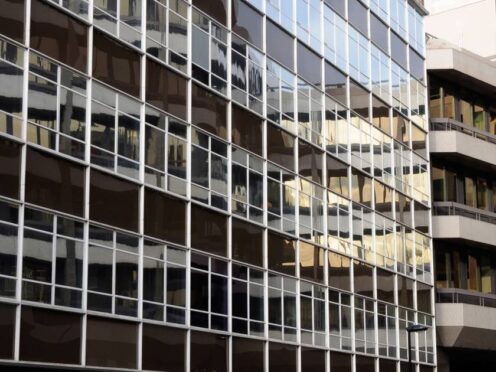
Arts Council England has confirmed that it will not remove funding from makers of political work.
The public body announced on Wednesday that its relationship framework’s section on considering reputational risk had been changed after accusations that it was trying to “silence artists both on stage and in their personal lives”.
Ace had warned venues and performers about work that touches on politics and activism.
Former The Undertones frontman Feargal Sharkey, who regularly campaigns on water quality, and poet Nikita Gill were among those to hit out at the January update by the arts body.

The new Ace wording maintains that the “arts and other forms of cultural activity have, throughout history, challenged established views and asked difficult questions”.
“Art is often political, and many of the organisations we invest in present work that is thought-provoking and raises uncomfortable questions,” the document says.
“We believe this to be a right and proper use of public funding.
“Freedom of artistic expression is a foundational principle in this country, and one that we are committed to champion and defend.”
It also says the idea of looking at reputational risk is all about planning for an organisation and allowing organisations it funds to “weather potential negative reactions, and to effectively support your staff, the creative practitioners you work with, and the communities you serve”.
The section had previously said that risk may be caused by fraud and financial concerns along with “artistic and creative output that might be deemed controversial, activity that might be considered to be overtly political or activist and goes beyond your company’s core purpose and partnerships with organisations that might be perceived as being in conflict with the purposes of public funding of culture”.
It also told organisations to record potential damage, weigh up whether to go with a particular action or activity and alert Ace of what had been decided.
The new steps include “make time to consider and discuss the risk”, “speak to other organisations who have faced similar issues”, mitigate the issue and then see if you should proceed and talk to Ace.
In bold writing, the Ace document highlights this paragraph saying: “We expect all organisations we invest in to support freedom of expression.
“We see this as essential for a thriving cultural sector in this country.
“This framework is intended to support artistic freedom, by helping organisations identify, plan for, and respond to risks; avoid self-censorship; and tackle difficult subjects with clarity and confidence.
“The Arts Council will not remove or refuse funding to an organisation or an individual purely because they make work that is political.”
Earlier this month, Equity wrote to Darren Henley, chief executive of Ace, after the performing arts and entertainment trade union became “deeply concerned” about the guidance.
It also said the body was trying to “censor the work that organisations produce and present, and most worryingly, attempt to silence artists both on stage and in their personal lives – especially those working in the activist or political space”.
“Far from protecting artists, it sends a clear message to discourage the creation of art that is political, and to avoid full participation in civil society if you are an artist who wishes to work with Arts Council funding,” Equity also said.
“Arts Council England is subject to political pressures from the government of the day, and its new guidance will allow it to divest and disassociate itself from artists who speak truth to power.”

Ace is an “arms length body” from the Government’s Department for Culture, Media and Sport.
Gill wrote on X, formerly Twitter: “Very normal for the Arts Council to turn around and say artists of all people should not make political statements.”
Sharkey made parallels between Ace and Northern Irish rappers Kneecap threatening legal action this month after being blocked for a previously approved grant by the Government.
The British Phonographic Industry (BPI), who runs the Music Export Growth Scheme, said in a statement that it was “disappointed” that the UK Government did not approve the funding for the Belfast rap trio.
It was reported, at the time, that a spokesperson for UK Business Secretary Kemi Badenoch said they did not want to give taxpayers’ money “to people that oppose the United Kingdom itself”.

Enjoy the convenience of having The Sunday Post delivered as a digital ePaper straight to your smartphone, tablet or computer.
Subscribe for only £5.49 a month and enjoy all the benefits of the printed paper as a digital replica.
Subscribe